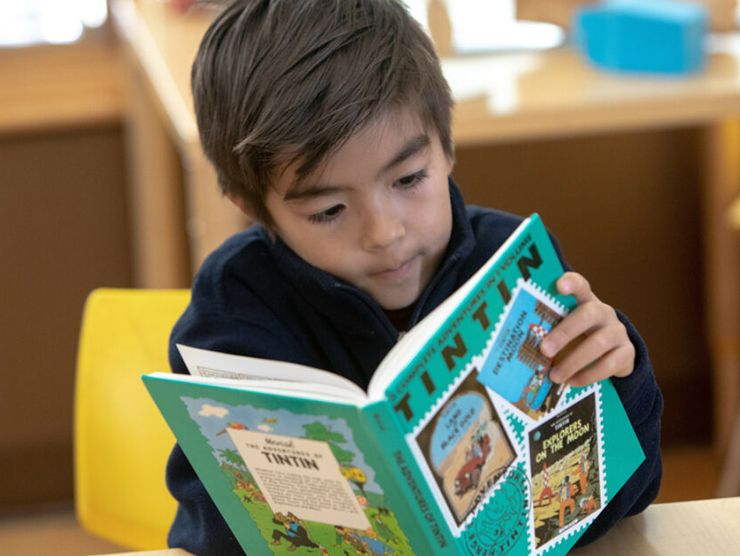How can we help our children behave? Each child needs to experiment and test his own behavior within clearly defined limits. In other words, our children are supposed to act out, talk back, and not listen – at least once and most likely many times. That’s how they learn.
Think about learning to skate or ride a bike—you fall. Even after you’ve mastered skating and biking, if you’re tired, you’re more likely to fall. It’s the same with children and their behavior. Trying to figure out what they can and can’t do, children often wonder, "How much can I get away with before someone stops me?" Most children aren’t devious or even manipulative in a negative sense. Children just want to learn the rules of life. Depending on their temperament, our children may devoutly follow the rules, follow the rules just enough to avoid consequences, or try to set their own rules.
Make sure your child gets enough sleep. The American Academy of Pediatrics recommends that children should consistently obtain at least 9 to 11 hours of sleep each night. When children are even slightly sleep deprived, it not only negatively affects their health, but it can also make it harder for them to control their behavior.
Establish a routine. A routine gives children a structure and environment that fosters feelings of security, comfort, trust, and less anticipatory anxiety. They know what to expect, feel more in control, and can learn more easily. Routines give children a better understanding of their world and how they are expected to function in it.
Have clear, specific rules of acceptable behavior. It sounds silly, but we often don’t tell our children the rules. "We’re not buying anything at the store, except groceries. Please don’t ask."
Be consistent. Children understand cause and effect. If we are inconsistent in certain situations, regardless of our intention, our children will learn that their inappropriate behavior is the way to get what they want. Nothing is more important than consistency.
Avoid at all cost: "No, No, No, No, No. Yes." This teaches children to hold out to get their way. So does putting up with crying until we can’t stand it and then giving in.
Stop what you are doing, and go to your child. Put down the phone, stop the car, ask the hundred shoppers behind you to wait, or come out of the shower dripping wet, dressed in a towel and covered in soap. When you stop what you are doing and go to your child, you are acknowledging the inappropriate behavior when it happens and correcting your child immediately following his actions.
Speak to your child at eye-level. For young children this usually requires getting down on your knees, leaning over, or sitting on the floor. For older children, having both of you sit down is the best method, on the floor or in chairs, whatever is convenient.
Validate your child’s feelings. When your child has misbehaved, let him know that you understand or you are trying to understand how he feels. Validate his emotions or intentions. "I know you wanted the toy, but your sister was playing with it." Speak in a normal tone of voice.
When you are upset with your child, try not to yell or raise your voice. Use a positive, firm, natural tone of voice. In simple terms, explain to your child what he did wrong. He may not know. Instead of "You made a mess," say, "You took all of Mom’s books off the shelf."
Offer your child choices when possible. Give your child a choice between two activities that you propose. "It’s time to eat dinner. Do you want to put your seat beside your sister or me?"
Redirect your child. Guide your child to a new activity, and he can no longer do what he wants to do. "You can build with blocks. You can’t play with blocks if you throw them. You can throw a ball."
Have logical consequences for inappropriate behavior. Don’t allow your child to continue doing what he wants to do unless he does it appropriately. "You can write on paper. You cannot use the markers if you write on the walls."
Follow through. If you tell your child that there will be a particular consequence for an inappropriate action, follow through.
When your young child is having a tantrum, remember that she is still learning to control her emotions and actions. Admit it, there have been several occasions when we wanted to lay down at the checkout aisle of the grocery store and kick and scream. Most of us just haven’t done it yet.
Lastly, don’t beat yourself up when you violate all these guidelines. Perfect parenting is rare. Children are children and parents are parents, so do the best you can; don’t give up; and they just might grow up fine. (And those other children that look perfect – just might not.)
More Parent Resources:
- Read about News Mom's struggle to apply toddler discipline rules in public places on our Mom to Mom blog.
- Get discipline ideas for other ages in our e-family news archive articles: Infant Discipline: Are You Kidding? and Discipline Tips for School-Age Children.
- Disciplining Your Child article and resources from KidsHealth.org
- Listen to this short audio clip - Discipline: A 3-Step Approach - from the American Academy of Pediatrics.





